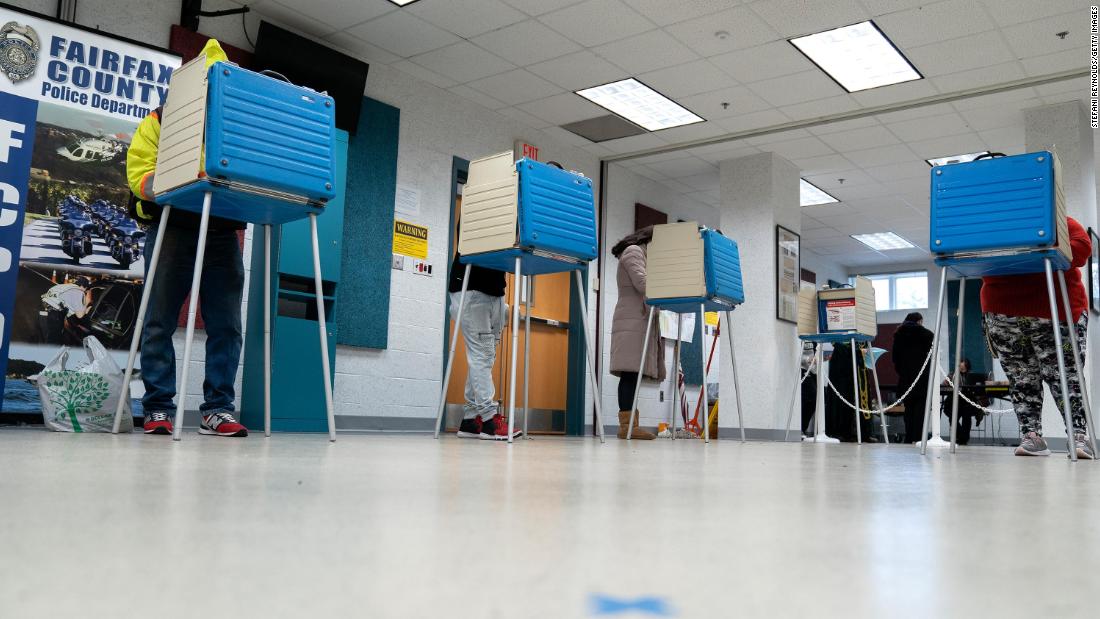Democratic-led states expand voting rights amid GOP push to restrict access
Republican lawmakers have introduced 361 restrictive bills in a different set of 47 states. Texas, Arizona and Georgia — states that are competitive in presidential elections, but where Republicans have full control of statehouses — have seen the largest numbers of restrictive bills introduced, according to the Brennan Center.
“Your access to the ballot depends a lot on where you live,” said Jon Greenbaum, chief counsel of Lawyers’ Committee for Civil Rights under Law, “and the divide is growing.”
It’s part of the reason voting rights activists and Democrats have pushed to establish baseline voting rules for all Americans. But those proposals, including the House-passed “For the People Act,” which would expand early voting, allow same-day registration, require automatic voter registration, ease ID requirements and more, has not attracted enough Republican support to clear the Senate.
Rising partisanship
The rush to change voting laws and the heightened attention both parties’ bases are paying to the issue shows the hyper-partisan nature of what could be the most significant battle over voting access since the civil rights era.
It’s a departure from a more recent period in which some overhauls of voting laws were implemented with bipartisan support. Early shifts to mail-only voting, for example, occurred in Republican-dominated Utah and in Oregon, where the change was backed by GOP lawmakers. Previous expansions of voting access often happened “in what we would deem non-competitive states,” including traditionally red states such as Alaska, which has automatic voter registration, Sylvia Albert, director of voting and elections at Common Cause, said in an online briefing with journalists Wednesday.
But following Trump’s falsehoods about election fraud, “what we are now seeing is that any state, that is, you know, Republican-controlled, is trying to move forward on voter-suppression measures, and many Democratic states … saw the greater outcomes from the last election — greater turnout and access — and are moving forward with expansions.”
That’s not true in every single state, she said, but “we are seeing trends, and they are often breaking down” along partisan lines.
What Democratic-led states are doing
In Washington, the state legislature has sent to Democratic Gov. Jay Inslee’s desk a bill that would automatically restore the voting rights of people convicted of a felony once they are released from prison. The measure was approved despite Republicans’ objections to restoring the voting rights of those who are on parole or probation.
In Delaware, the state Senate has approved a bill to automatically register voters when they visit the Department of Motor Vehicles. That bill now heads to the House.
Virginia — where Democrats won control of the Senate in late 2019, giving the party its first majority in both chambers of the legislature since 1994 — has been the most aggressive in expanding voting access. The state in recent months has repealed its voter ID law, made Election Day a holiday, allowed 45 days of no-excuse absentee voting and established automatic voter registration for anyone who obtains a driver’s license.
Democratic Gov. Ralph Northam last month took executive action to immediately restore former felons’ voting rights as soon as they complete their prison terms, a move that will immediately apply to more than 69,000 formerly incarcerated Virginians.
The measure would require local elections officials to take public feedback or get advanced approval from the state’s attorney general before making changes such as moving voting precincts. It allows the attorney general to sue over voter suppression, and prohibits racial discrimination or intimidation related to voting.
“At a time when voting rights are under attack across our country, Virginia is expanding access to the ballot box, not restricting it,” Northam said in a statement.
A spokesperson for Gov. Phil Murphy said that the governor intends to sign the early voting bill on Tuesday.
A second bill sent to the governor gives the county board of elections the ability to determine the location of ballot drop boxes, the lawmakers’ release said. The state General Assembly and Senate gave final approval to the measure on Thursday.
CNN’s Taylor Romine and Devan Cole contributed to this report.
![]()


